Genetic variation in color morphs of the endangered species, Paracentrotus gaimardi (Echinoidea: Echinidae)
DOI: https://doi.org/10.3856/vol44-issue1-fulltext-5
Abstract
Paracentrotus gaimardi is a sea urchin reaching a maximum of 42 mm of diameter. It presents five morphotypes in sympatry characterized by their distinctive spine colors (e.g. green, black, gray, brown and rose). P. gaimardi is considered as a vulnerable species and it is included on the list of endangered species of the Brazilian coastline. In this work, allozyme electrophoresis was used to studied the genetic variation among the five color morphotypes, from two different geographic locations along the coast of Rio de Janeiro State: Itaipu and Prainha, both in sympatry and allopatry. The underlying null hypothesis is that the different spine colors that define the morphotypes, represent only intraspecific variation of P. gaimardi. Eight polymorphic loci (Cat, a-Est-1, a-Est-2, Mdh, Pep, Pgi, Pgm and Xod) were assayed. Departures from Hardy-Weinberg equilibrium were tested at each locus in each morphotype from each locality. P. gaimardi species showed high levels of genetic variation (0.171-0.343) in accordance with the patterns observed for marine invertebrates. Diagnostic loci were not found among any of the five morphotypes and neither for the different geographic locations. A Mann Whitney U test showed values significantly lower in sympatry than in allopatry for both Nei’s Genetic Identities and 2 x 2 θ F-statistics. Furthermore, performance of AMOVA analysis considering a hierarchical levels of individuals, colour-morphs and locations indicates that the differences in genetic variation are sorted among collection sites rather than color morphotypes.


